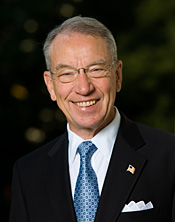 Q: When will the public have access to information about payments made by drug and device makers to doctors?
Q: When will the public have access to information about payments made by drug and device makers to doctors?A: The public is a step closer to learning just how much money and travel expenses pharmaceutical company and medical device makers give to doctors. This month, a federal agency finally put out proposed guidance for the companies that will have to disclose the payments under the Physician Payments Sunshine Act, which I co-authored and saw through to enactment last year. If implemented as designed, the sunshine law will require a drug company to disclose whether it pays a doctor to attend a conference in Hawaii. A medical device maker will have to list whether it keeps a doctor on paid retainer for medical advice. Fees paid for consulting, speeches and expert advice will be reported. In 2013, the public will have access to this information through a user friendly website of the U.S. Department of Health and Human Services. This fall, the federal agency responsible for launching the program missed a key deadline for putting out the Sunshine Act guidance. Senator Herb Kohl of Wisconsin and I pressed the agency to explain the delay and encouraged it to move forward. The day before an agency witness was supposed to testify on the issue at a Senate hearing, the agency issued the guidance. So riding herd worked.
Q: Why did you push for a disclosure requirement?
A: For a number of years, I’ve been digging into pharmaceutical and medical device industry payments to continuing medical education, taxpayer-funded medical research, medical schools, medical journals, and advocacy organizations. Among research doctors, my oversight work found a number of cases where highly influential research doctors were receiving payments vastly greater than what had been reported by them or understood by their prestigious universities. Discrepancies ran as high as millions and tens of millions of dollars. In direct response to this exposure, the National Institutes of Health, which distributes $32 billion a year in federal research dollars, proposed new disclosure guidelines for federal grant recipients. I’m still working to see this agency act more aggressively in this area as a steward of tax dollars. Separately, a number of drug companies began disclosing financial relationships voluntarily. More than 40 universities nationwide took up revisions of their disclosure policies. My oversight work also built the case for enactment last year of the reform bill – the Sunshine Act — that Senator Kohl and I had been promoting since 2007.
Q: What do you hope to accomplish?
A: The well-regarded Institute of Medicine issued a report in 2009 endorsing transparency and stating that protections against conflicts can be established without inhibiting productive relationships between medicine and industry to improve medical knowledge and care. My argument has been that the transparency of these financial relationships is appropriate so that patients and their doctors can be informed and because taxpayers pay billions of dollars each year for prescription drugs and medical devices under Medicare and Medicaid. The goal is to let the sun shine in and make information available to foster accountability.






